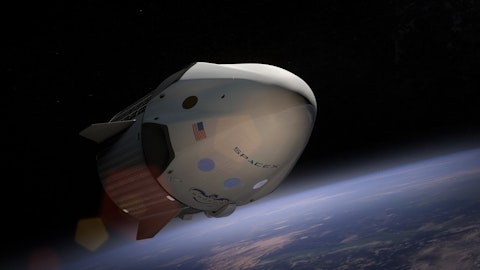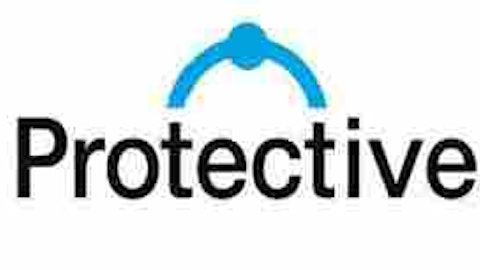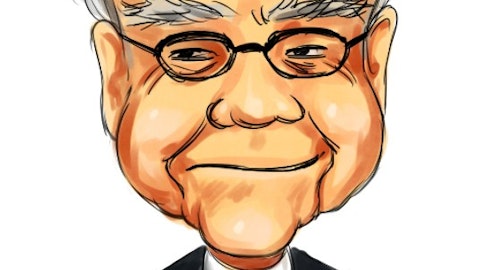Edison Yu: Thank you for taking our questions. First off, I want to ask about some industry developments. Obviously, we’ve had a bit of time to digest the Maxar to private. And I’m wondering from what you’re seeing, have you witnessed any changes in the competitive dynamics and the customer feedback? Just kind of curious what you’ve seen kind of 3 or 4 months after now that’s been out there for a while.
Will Marshall: I don’t think that has changed the microscopic opportunities we are seeing. We have been seeing continued improvement in our win rates where we have head-to-head competition. But the main thing is that we offer something completely different, right, which is our Planet Scope provides the daily scan of the Earth. I think we estimated it’s about 100x more collection areas than any of the other commercial providers. So 100x, right? It’s a totally different system. It’s the scan of the Earth versus a task model. We also had a task system. But that scan is what is enabling a lot of these AI applications, a lot of the defense and intelligence applications we’re seeing looking around the corner. It’s allowing the board’s scale — agricultural applications, it’s allowing the scale civil response to disasters and things like that.
So a lot of the use cases, including the exciting new ones with AI, are backed off the daily scan, which is completely unique store. Does that answer your question?
Edison Yu: Understood. Yes, yes. So in relation, we’ve also seen, I think, several pretty prominent EO satellites, basically just not be deployed properly, right? You had Airbus that’s too high res ones. I think Japan lost a $200 million plus one. Does that perhaps give you some more incentive to deploy a Pelican investor? Or do you think — or is the time line still kind of what you initially thought?
Will Marshall: Well, look, I mean it just reminds us that space is really hard, and these challenges do occur. Our approach is a little bit different than most of those other players in the sense of deploying many more satellites. And so the risk associated with any particular launch tends to be lower. And the broader point is that how we use agile aerospace, which is the sort of release early as often enabling us to get to much better cost or capabilities per dollar on our satellites than others have ever been able to achieve. And this essentially was a really interesting, McKinsey report that just came out today, highlighting where the transition is and point to the fact that, that transition again from satellite is with several 0s, right, it’s 100x or 1,000x, whereas very few industries go undergo that sort of transformation.
And so Planet has a unique approach to makes us a little bit less dependent on any one particular launch. But yes, I mean we are certainly encouraged to your other point about Pelican and to push that program fast because we are feeling that demand, as I said in my remarks.
Ashley Fieglein Johnson: Yes. I think the shift that this is also pointing to is just commercial markets and the availability of this kind of commercial data is the future of the earth observation industry. And the activity — the events of last year really pointed to that, and I think this just underscores that.
Edison Yu: Got it. If I could sneak one financial one in there. I know you mentioned the macro softness having some impact. Any way you can quantify that or drill further into the — how much is embedded into the outlook as it pertains to that macro uncertainty?
Ashley Fieglein Johnson: Here’s the way I’d say it, Edison, is what — we build our model the same way every year. We start with the book of business that’s committed. And then we look at what’s coming up for renewal. And really, the nature of our business, we can do that almost on an account-by-account basis and get a very strong sense of what are our customers going through? Who is likely to be in those budgetary pressures? Where do we know we’ve delivered a lot of value and we have an opportunity to upsell? And so that kind of drives our assumptions around our renewal rates and then our expansion opportunities. And then we just try to layer on conservatism around the timing of new business just given that there are a lot of factors out there, even though what we actually see more than anything is what Kevin described the pull from the need for our data but balancing that with the caution of just a generally uncertain macroeconomic environment.
Kevin Weil: And maybe just to add a bit from the perspective of the customer, and we talked about commercial deals that we closed like PG&E, AXA, Swiss Re that are leveraging some of our new planetary variables. We see a resilient commercial market even beyond that. So just during Q4, we also won contracts with one of the largest global management consulting firms. Will, mentioned the Fortune 500 energy and utility company above and beyond PG&E. There’s also a large multinational technology company in Japan, multiple large customers in the agricultural industry. So I could go on. Certainly, there’s some degree of caution, but we see a lot of strength in the commercial market, even despite that.
Edison Yu: Great. Appreciate that and thanks.
Operator: Thank you, Mr. Yu. The next question is from the line of Katherine Knop with B. Riley. You may proceed.





